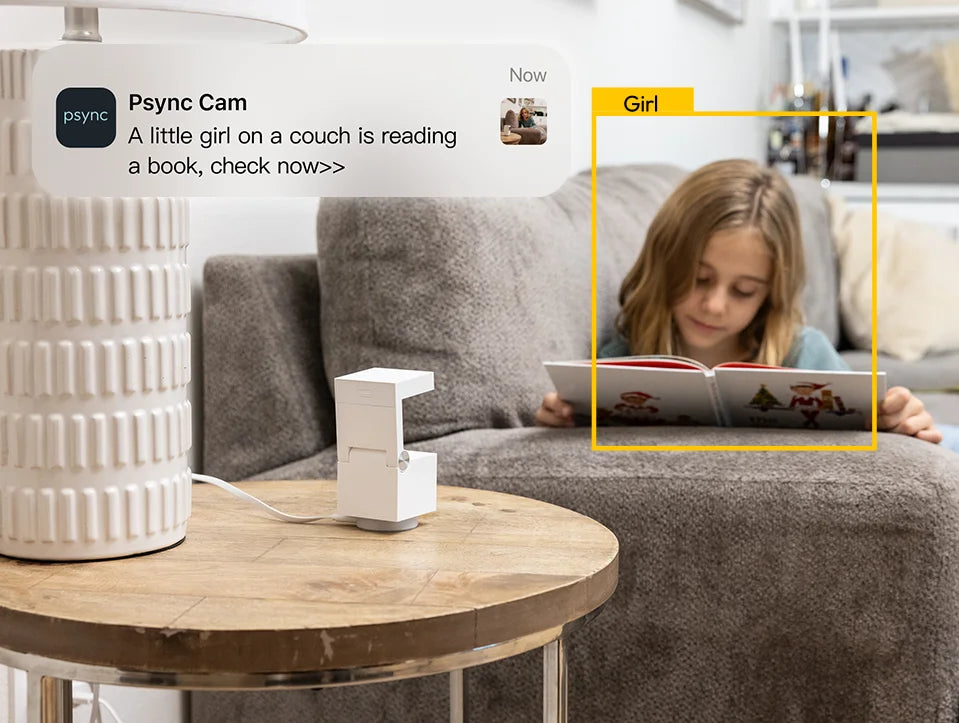Unlocking the Future: Discover How AI Security Cameras are Revolutionizing Your Safety
In today's fast-paced world, security has become a paramount concern for individuals and businesses alike. Enter AI security cameras, an innovative solution that combines advanced technology with surveillance to provide a safer environment. Unlike traditional security cameras that merely record footage, AI security cameras utilize artificial intelligence to analyze and respond to real-time events. This evolution in security technology is not just a trend; it's a necessary adaptation to the complexities of modern safety challenges. As we delve into the functionality and benefits of these intelligent devices, it's clear that they represent a significant leap forward in our efforts to safeguard lives and property.

Understanding AI Security Cameras
AI security cameras are sophisticated surveillance devices equipped with artificial intelligence and machine learning capabilities. Unlike their traditional counterparts, which rely solely on human monitoring and basic motion detection, AI cameras can analyze video feeds in real-time to identify unusual activities and potential threats. These cameras use algorithms that learn from data patterns, enabling them to distinguish between normal and suspicious behavior. For instance, they can recognize the difference between a harmless passerby and someone attempting to breach a security perimeter. This technology not only enhances security but also reduces the burden on human operators who would otherwise have to sift through hours of footage, making AI security cameras a game-changer in the field of surveillance.
How AI Security Cameras Work
The operational mechanisms of AI security cameras are fascinating and complex. These cameras often feature advanced motion detection capabilities, allowing them to activate only when movement is detected. This minimizes unnecessary recordings and helps conserve storage space. One of the standout features of AI cameras is facial recognition, which enables the system to identify individuals based on stored images and alert users if an unknown person is detected. Additionally, many AI security cameras are cloud-based, meaning they can store and analyze vast amounts of data off-site, providing accessibility and enhancing security. Real-time alerts are another critical feature: when the system detects a potential threat, users receive immediate notifications on their smartphones, ensuring prompt action can be taken. Together, these features create a robust security network that adapts to the environment and user needs.
Benefits of AI Security Cameras Over Traditional Cameras
When comparing AI security cameras to traditional models, the benefits are striking. One of the most significant advantages is enhanced accuracy. AI cameras minimize false alarms by using intelligent algorithms that can differentiate between harmless and suspicious activities. This is particularly beneficial for businesses that face potential disruptions from false alerts. Moreover, AI security cameras offer exceptional remote monitoring capabilities. Users can access live feeds and receive alerts from anywhere in the world, allowing for greater flexibility and peace of mind. The adaptability of AI cameras to various environments is another benefit; whether it's a busy city street or a quiet suburban neighborhood, these systems can be fine-tuned to meet specific security needs. Personal experiences shared by friends who've installed AI cameras in their homes echo these benefits, as they report feeling safer and more in control than ever before.
Real-World Applications of AI Security Cameras
AI security cameras are being deployed across various settings, each showcasing their effectiveness in enhancing safety. In residential areas, homeowners are using these cameras not just to deter crime but to monitor package deliveries and identify visitors. For businesses, AI cameras can track customer behavior, ensuring both security and improving service quality. Public spaces, too, are increasingly adopting AI surveillance; cities are using these systems to monitor traffic patterns and enhance public safety. A friend of mine who works in urban planning shared a compelling case study where AI cameras helped reduce crime rates in a downtown area by 30% within a year. This real-world application highlights the transformative potential of AI security cameras, proving that they are not just a technological advancement but a vital component in our security infrastructure.
Transforming Security with AI Technology
As we explore the multifaceted world of AI security cameras, it's evident that these devices are reshaping the landscape of personal and public safety. Their ability to analyze data in real-time, reduce false alarms, and provide remote access makes them a superior choice over traditional security cameras. Whether for a home or a business, investing in AI security technology can significantly enhance safety measures. As we continue to navigate through an increasingly complex world, the integration of AI security cameras stands out as a pivotal step towards ensuring a safer future for everyone. It's time to consider how these innovative solutions can protect what matters most to you.







